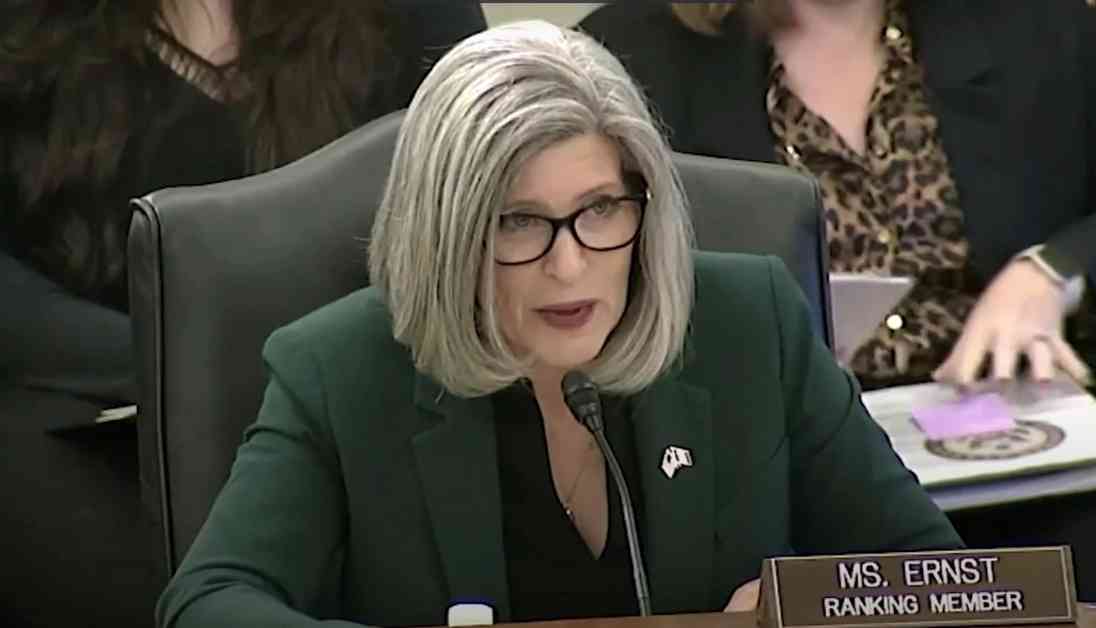Senator Joni Ernst of Iowa has come out in defense of President Trump’s recent spending freeze order, highlighting the administration’s focus on scrutinizing federal spending. The move, which temporarily suspended funding for various government programs and agencies, has raised concerns among Iowans regarding essential benefits such as SNAP and Medicare.
In a recent statement, Senator Ernst emphasized that President Trump’s actions are aimed at protecting funds that directly serve Americans while reevaluating programs that may not be effectively utilizing taxpayer dollars. She reassured the public that critical benefits like SNAP, Medicare, and other direct assistance programs will not be impacted by the spending freeze.
Trump Administration’s Funding Review
The Office of Management and Budget (OMB) recently lifted the pause on federal grants and loans that was initially instigated by the Trump Administration. This decision came after a federal judge intervened, temporarily blocking the president’s aid freeze. Despite this development, White House officials maintain that the executive order mandating funding reviews remains in effect. The targeted areas for review include funding related to immigration, energy, and diversity, equity, and inclusion (DEI) programs.
Senator Ernst, a Republican hailing from Red Oak, echoed the administration’s stance on eliminating funding for initiatives in foreign countries, emphasizing the importance of prioritizing programs that directly benefit American citizens. She underscored the distinction between investments that support local communities in Iowa versus those that primarily serve corporate interests, applauding President Trump’s efforts to reallocate resources accordingly.
Criticism and Response
While Senator Ernst and the Republican camp have voiced support for President Trump’s spending freeze order, Iowa Democrats have expressed strong opposition, condemning the potential ramifications of the funding suspension. Iowa Democratic Party Chair Rita Hart raised concerns about the adverse effects on vulnerable populations, including veterans, farmers, children, and senior citizens. She criticized the perceived incompetence in Washington, warning that the widespread confusion surrounding the funding freeze could exacerbate an already challenging situation.
In a candid interview with KMA prior to the rescindment of the federal funding freeze, Senator Ernst addressed the necessity of reevaluating spending priorities, particularly in areas like humanitarian aid for regions such as Ukraine. Highlighting her work on scrutinizing the United States Agency for International Development (USAID), she shed light on inefficiencies in allocating funds for humanitarian efforts, citing challenges in effectively distributing aid to the intended beneficiaries in Ukraine.
As the debate surrounding the spending freeze order continues to unfold, the contrasting perspectives from both political parties underscore the complexities of balancing fiscal responsibility with ensuring essential services and benefits for all Americans. The ongoing dialogue between lawmakers, officials, and advocacy groups reflects the broader struggle to navigate budgetary constraints while upholding the welfare of the nation’s most vulnerable populations.
Senator Ernst’s insights into the rationale behind President Trump’s funding review initiatives offer a glimpse into the intricate decision-making processes shaping federal budget allocations. Amidst the political discord and policy debates, the underlying goal of optimizing resource allocation to maximize impact remains a central theme in the ongoing discussions surrounding federal spending priorities.





















